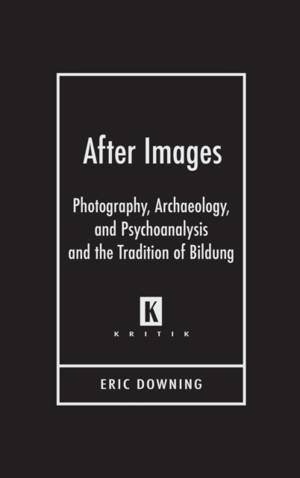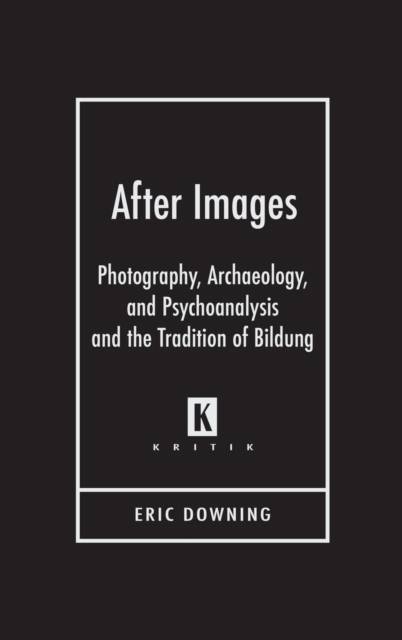
- Retrait gratuit dans votre magasin Club
- 7.000.000 titres dans notre catalogue
- Payer en toute sécurité
- Toujours un magasin près de chez vous
- Retrait gratuit dans votre magasin Club
- 7.000.0000 titres dans notre catalogue
- Payer en toute sécurité
- Toujours un magasin près de chez vous
Description
Examining literature and cultural theory of the late nineteenth and early twentieth centuries, this volume considers connections between photography, archaeology, and psychoanalysis and their effects on conceptions of the self and Bildung.
After Images explores the intersections of photography, archaeology, and psychoanalysis and their effect on conceptions of the subject and his formation or Bildung in the literature and theory of the late nineteenth and early twentieth centuries. All three disciplines emerge out of the same historical context, and both photography and archaeology had major impacts on how psychoanalysis came to conceive of the subject, his memory, and the formation of his identity; and psychoanalysis had an equally major impact on how contemporary authors came to think about these same things. In After Images, Eric Downing examines works from Thomas Mann, Sigmund Freud, and Walter Benjamin to find evidence of the reconceiving and dismantling of the tradition of Bildung in literature of this historical period.
This volume begins by using the work of Bergson, Proust, Darwin, and others to elaborate a peculiarly modernist model of memory as a photographic plate and explores the ramifications of that model for the project of Bildung in Mann's The Magic Mountain. The second section focuses on Freud's reading, and the author's own, of Wilhelm Jensen's novella Gradiva, considering the effects of taking classical archaeology--a key institution in the official culture of Bildung and the formation of national German identity--as a model for the formation of individual psychological identity. The first two sections also consider the impact of the introjected field--photography and archaeology, respectively--on the conception of gender and sexuality at stake in Bildung. In the third section, the author examines Walter Benjamin's Berlin Chronicle and its use of photography and archaeology to imagine both the process of memory and the project of analysis. The final section is an epilogue that considers the fate of these constellated themes in the postmodern works of W. G. Sebald, focusing on his novel Austerlitz.
The confrontation of photography, archaeology, and psychoanalysis with nineteenth-century ideals of the self led to many changes in contemporary literature. Scholars, students, and teachers of German studies, comparative literature, cultural studies, and classical studies will appreciate this insightful volume.
Spécifications
Parties prenantes
- Auteur(s) :
- Editeur:
Contenu
- Nombre de pages :
- 384
- Langue:
- Anglais
- Collection :
Caractéristiques
- EAN:
- 9780814333013
- Date de parution :
- 09-08-06
- Format:
- Livre relié
- Format numérique:
- Genaaid
- Dimensions :
- 160 mm x 238 mm
- Poids :
- 644 g

Les avis
Nous publions uniquement les avis qui respectent les conditions requises. Consultez nos conditions pour les avis.






